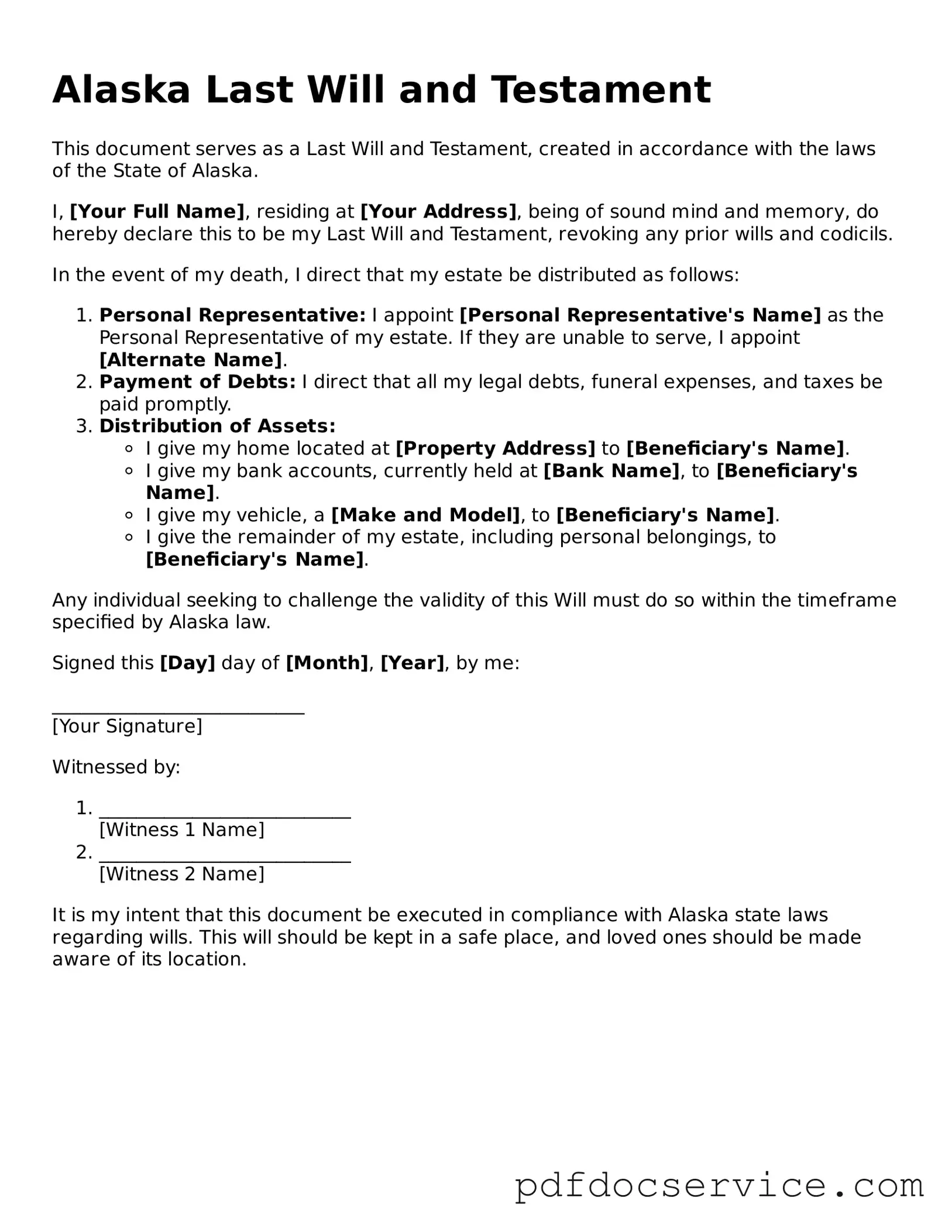What is a Last Will and Testament?
A Last Will and Testament is a legal document that outlines how a person's assets and property should be distributed after their death. It allows individuals to express their wishes regarding the management of their estate and can also appoint guardians for minor children. By having a will, you can ensure that your wishes are honored and that your loved ones are taken care of according to your preferences.
Why is it important to have a will in Alaska?
Having a will in Alaska is crucial for several reasons:
-
It provides clarity on how your assets should be distributed, reducing potential disputes among family members.
-
A will allows you to choose an executor, someone you trust to carry out your wishes.
-
It can simplify the probate process, making it easier for your loved ones to manage your estate.
-
Without a will, Alaska's intestacy laws will determine how your property is distributed, which may not align with your wishes.
What are the requirements for creating a valid will in Alaska?
To create a valid will in Alaska, you must meet the following requirements:
-
You must be at least 18 years old.
-
You must be of sound mind, meaning you understand the implications of creating a will.
-
The will must be in writing. This can be handwritten or typed.
-
You must sign the will in the presence of at least two witnesses, who must also sign it.
Can I change or revoke my will in Alaska?
Yes, you can change or revoke your will at any time while you are alive and competent. To make changes, you can create a new will or add a codicil, which is an amendment to the existing will. If you wish to revoke your will, you can do so by destroying it or creating a new will that explicitly states the previous will is revoked. It's essential to follow the same formalities required for creating a will to ensure that the changes are valid.
What happens if I die without a will in Alaska?
If you die without a will, you are considered to have died "intestate." In this case, Alaska's intestacy laws will dictate how your assets are distributed. Generally, your estate will be divided among your closest relatives, such as your spouse, children, or parents. However, this distribution may not reflect your personal wishes, which is why having a will is highly recommended.
Can I write my own will, or do I need a lawyer?
You can write your own will in Alaska, and many people choose to do so using templates or forms available online. However, it is advisable to consult with a lawyer, especially if your estate is complex or if you have specific wishes that require careful wording. A lawyer can help ensure that your will complies with state laws and accurately reflects your intentions.
What is the role of an executor in a will?
The executor is the person you appoint in your will to carry out your wishes after your death. Their responsibilities include:
-
Managing your estate, including paying debts and taxes.
-
Distributing your assets according to your will.
-
Handling any legal matters related to your estate.
Choosing a trustworthy and organized person as your executor is essential, as they will play a crucial role in ensuring that your wishes are fulfilled.
How can I ensure my will is kept safe?
To keep your will safe, consider the following options:
-
Store it in a secure location, such as a safe deposit box or a fireproof safe at home.
-
Inform your executor and trusted family members about where the will is located.
-
Consider filing a copy with the local probate court, which can provide additional security and make it easier to locate when needed.
Regularly review and update your will to ensure it reflects your current wishes and circumstances.

